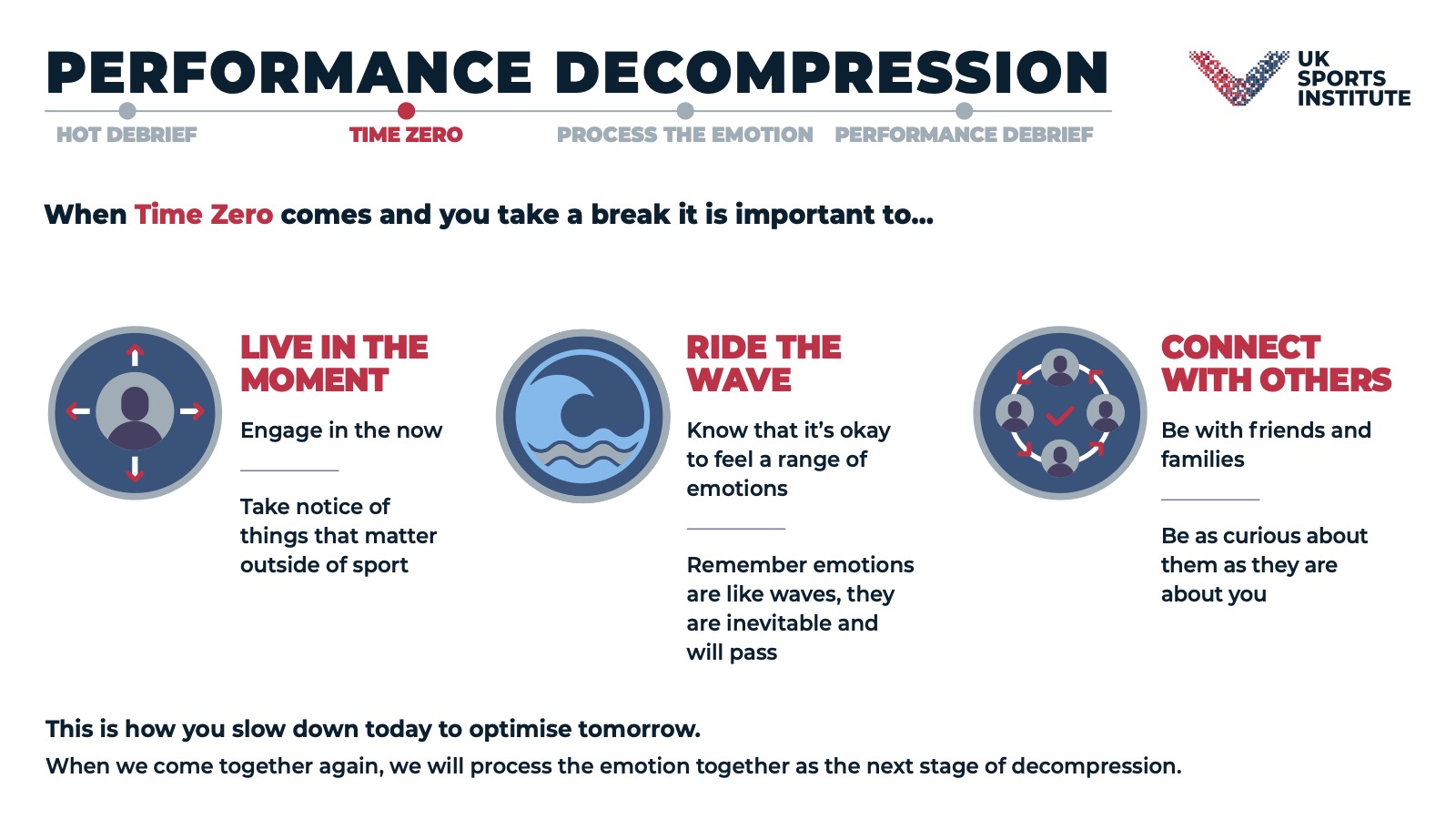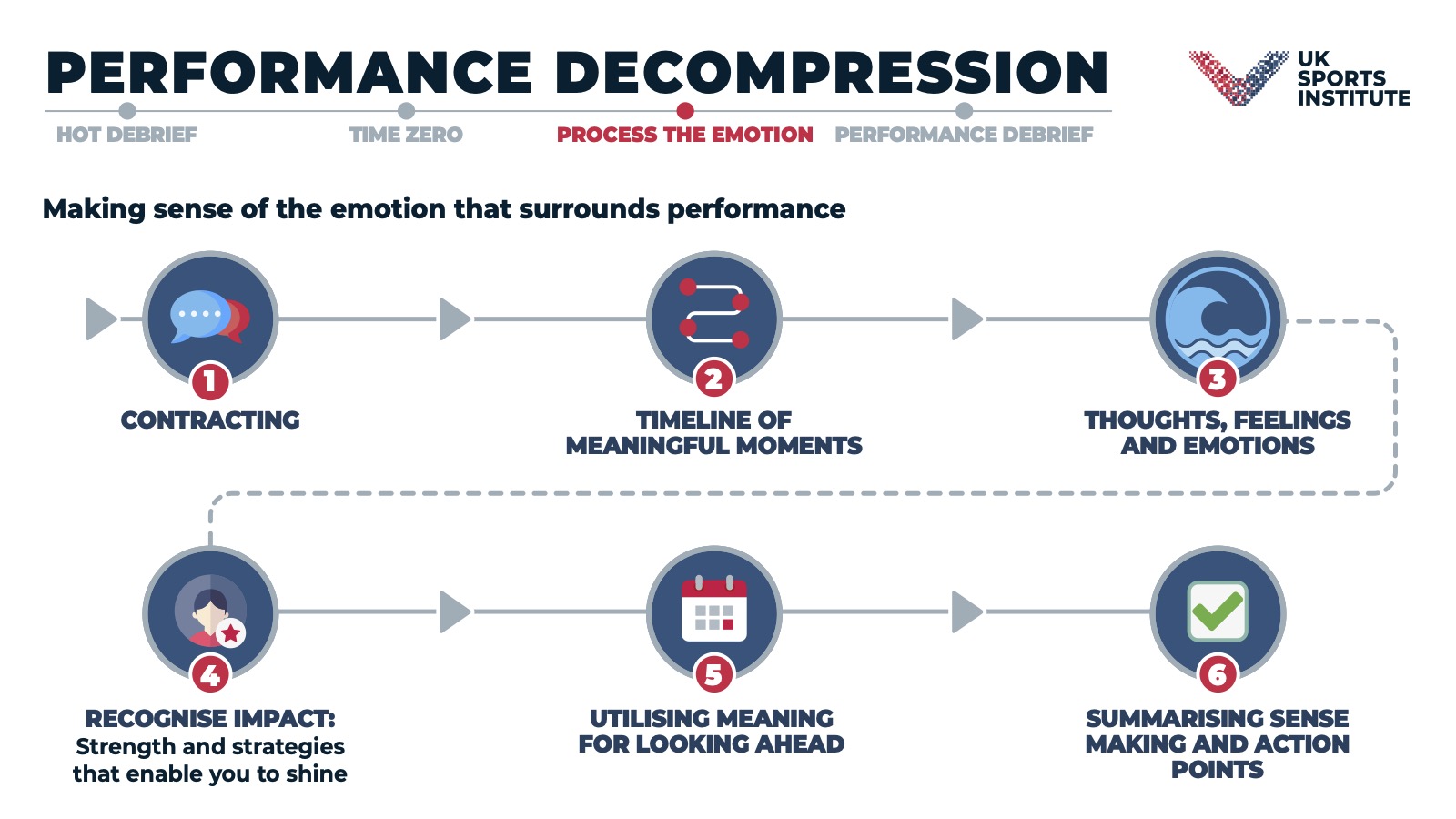Performance Decompression relaunched for Paris 2024
The adjustment for athletes, coaches, and support staff after the Olympic and Paralympic Games can be challenging, especially when returning to normality after two of the biggest sporting events in the world.
To help navigate this period, the UK Sports Institute (UKSI) Sports Psychology team are working closely with those involved in Paris 2024 on a post-Games period of Performance Decompression.
Performance Decompression was introduced after the Tokyo 2020 Games and has been adapted from work done during the Coronavirus lockdown to help individuals return to a normal and more relaxed state after a period of intense stress, psychological pressure, or urgent activity.
The aim is to help those involved in Paris 2024 to reset quicker, avoid maladaptive responses, and make sense of the experience they have been through.
“Performance Decompression provided a space to talk freely, to express my feelings and understand that it is okay to feel these emotions.”
Performance Decompression consists of four phases – the UKSI Sport Psychology team facilitate guidance around Time Zero (phase 2) and Process the Emotion (phase 3). The Hot Debrief (phase 1) and Performance Debrief (phase 4) are undertaken by the individual or in the sporting environment.
Time Zero focuses on taking a break to switch off from the performance demands you have experienced at the Games.

The Process the Emotion stage is a guided 90-minute conversation with a trained colleague which focuses on making sense of the emotion that surrounds performance, and helps celebrate the positives and explores what was challenging. It also highlights strengths and skills which can be utilised moving forward.

The UKSI Sport Psychology and Performance Lifestyle teams and multiple others in the high-performance system are trained in Performance Decompression and can deliver Process the Emotion conversations.
Reflections from athletes and practitioners after the Tokyo 2020 Games included:
“I needed to work through and let my emotions out in order to move on.”
“After I had processed everything, I couldn’t wait to return to training. I knew exactly what I wanted to do.”
“Acknowledging the negative emotions took longer, but going through that process and talking about it allowed me to get there in a healthier way.”
“It gave me clarity over my experience and what I had achieved, as well as what I had gone through to get to those experiences, and helped to put it all into context.”
Athletes, coaches, and support staff involved in Paris 2024 can learn more about Performance Decompression by speaking to the Sport Psychology or Performance Lifestyle practitioners embedded in their sport.
Access UKSI Performance Decompression Infographic explaining Performance Decompression.
See Professor Steve Peters talking about performance decompression and the importance of processing the Games on BBC 5 Live.
Dr Danielle Adams Norenberg also talked about performance decompression to The Athletic.